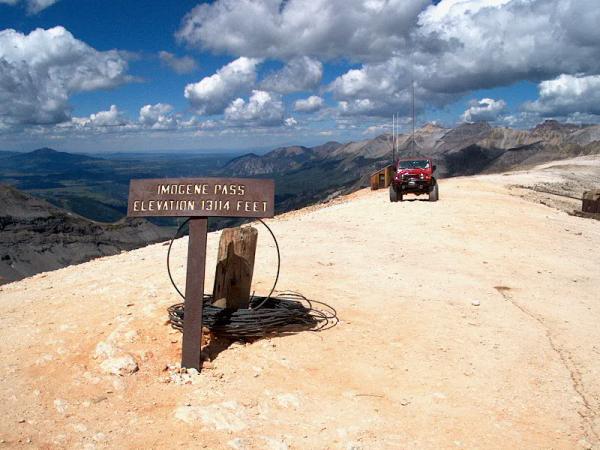
03 Feb TALL TALES: ROADS, THE MOON, NEWT
Editor’s note: “Tall Tales,” a monthly column on Telluride Inside… and Out is so named because the author knows how to spin a yarn, tall or otherwise. And, well, Mark Stevens is tall. Very tall. Perhaps tall enough, when he stands on tippy toes to touch the moon with his fingertips.
Ah, talk about your basic object of desire.
To the moon!
Worked for JFK, right? The ultimate trip. The ultimate rejection of the status quo. The ultimate embracing of tomorrow.
And now Newt Gingrich and his recent declaration: by the end of his second term (ahem, he might need a first term to have a second term), a colony on the moon. Yes, and dadgummit, they would all be Americans too!
Of course, a step away from the word “moon” is the word “lunar” and a morph from there to another word—lunatic.
Luna was the Roman goddess of the moon but the noun, “moon,” for centuries was used as an adjective—crazy.
I think Gingrich has a little lunatic in him for many reasons, but I admire the desire. The quest, the vision, the stretch.
A colony on the moon. Are you ready to sign up? He wants 13,000 hearty souls. (Why 13,000? What a number.)
But let’s bring this down to earth, so to speak.
It’s that drive I want to talk about. Yes, literally—that drive.
One of the most extreme drives I’ve ever taken was over Imogene Pass, Ouray to Telluride, in my friend’s SUV. I was riding shotgun. I don’t immediately remember the year, but it was a long time ago. All I really know is that on the way down the west side of the pass (we were on our way to one of the many fine music festivals), Taj Mahal and his band were playing and the music wafted up the canyon and my friend Kevin and I parked and sat on his tailgate and drank a few beers and listened. We had reached this amazing spot a few switchbacks up from downtown Telluride in a car. Going the long way.
Later that night, The Allman Brothers Band, one of our favorites, and we were in musical heaven. “Just one more morning, had to wake up with the blues…” We could have touched the moon.
But let’s go back to Imogene Pass—the sheer, great, lunatic notion of getting a car over the second highest pass in Colorado. Right there from Wikipedia: “Not for the novice driver.”
I’ll say. There were a few spots that were quite dicey. I mean borderline. I mean iffy. I remember low damp clouds at the top and not being quite certain where the road was headed. But there we were in a big car, bouncing along, gulping and gasping as we climbed toward 13,114 feet. (Hey, there’s that 13,000 number again. Coincidence? Um, Newt?)
Imogene Pass—a road to the sky.
Whose idea was this anyway? This road?
I thought of this desire (drive) thing recently while reading “The Routes of Man” by Ted Conover and that put the issue of roads in a whole new light. In the book, Conover (part journalist, part anthropologist, wholly terrific writer) takes us to extreme spots around the world where roads are changing cultures, changing the landscape, changing the people. Peru. India. Kenya. China. Israel. Nigeria. (The Peru trip makes Imogene Pass look like cruise control on fresh asphalt.)
Do you take roads for granted? I think it’s easy to do so. They are just, you know, there. I hate to even say it, but they are part of the landscape. Well, not really. All this concrete, all these girders and bridges and flyovers weren’t here when the giant mastodons roamed Colorado.
Roads, Conover argues, have moral implications. They connect us and with the connection comes responsibility. Human responsibility. The world has many needy people, he writes, and “it also has fortunate people with various abilities to help. But who deserves help? Well, if you live in a small community, you help your neighbor. Fine, but what if there’s a road—and via that road, outsiders arrive? Are they your neighbors?”
Roads introduce us to strangers. And how we interact with and treat strangers goes straight to the heart of how we conduct ourselves as people, as civilizations. As Conover points out so eloquently, this question goes straight back to one of the most basic lessons of all—that of the Good Samaritan. Doing the right thing.
Roads, however, also provide an opportunity to leave, to start over. You hit the road. You get out of Dodge. (In a Dodge?) You run for the border. Some of the greatest books and movies of all time—road themes. From “Little Miss Sunshine” to “Sideways” to “On The Road” to “The Road. ”
Roads are about dreams, desire. Drive.
But to the moon? Would people—Americans—on the moon be our neighbors?
Yes.
And we’ve already been there. You know we’re going back. We need to find that next “road,” we need to start heading that car uphill.
They say the sun is about half way through its 10-billion-year life cycle. We’d better get going. Maybe just not with Newt.



Sorry, the comment form is closed at this time.